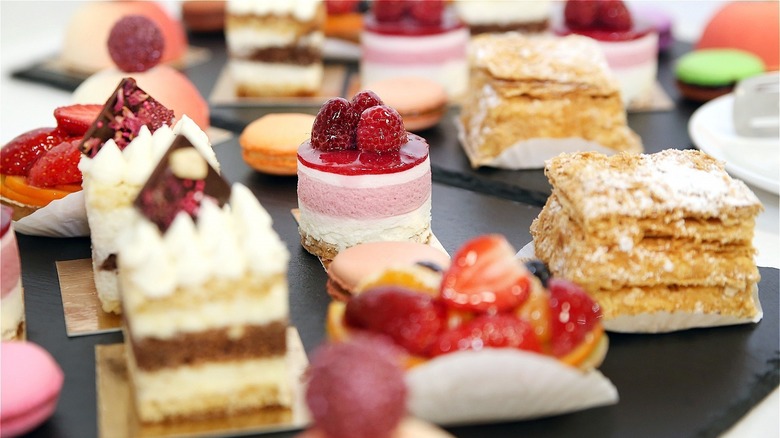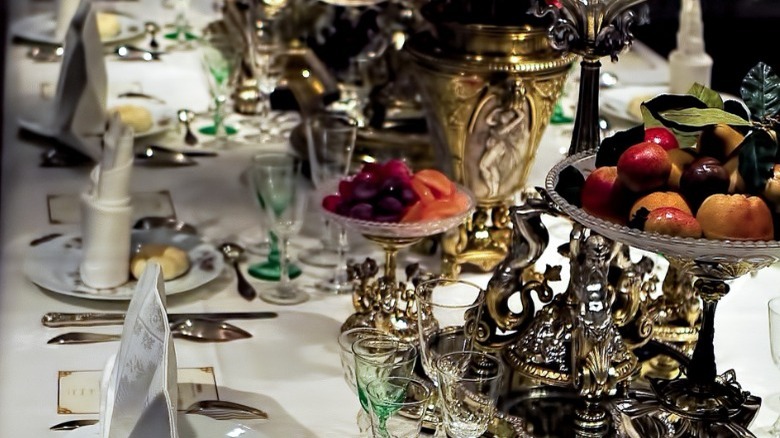Dessert Was Invented Earlier Than You May Think
The idea of having a sweet dish to finish a meal off is no American invention. In fact, dessert is actually much older than the United States of America or even many of the colonies that eventually became part of the U.S. The truth is that people have indulged their sweet teeth for centuries now.
The long story of sweet dishes goes back far into human history. Candy History says as early as 2000 B.C. Egyptians were pairing fruits, honey, and nuts to satiate their desire for sugar while people in China, Greece, and Rome were creating their own confections using sesame seeds. Enjoying a bit of sugar as a snack every now and then isn't the same thing as enjoying a dessert after a meal, however.
For the story of sweet treats as a concept, like the oldest dessert in the world that isn't what you think, you need to examine times that are a bit more modern.
Dessert's sweet origins
Food & Wine has a breakdown of when desserts took off in society. While Food & Wine says pastries were essentially used as containers in the 16th century, the 17th century was when having a separate course of a meal specifically for sweets really took off. Previously, Food & Wine explains, sweet items on the menu were served in concert with the savory offerings.
Local Histories states that common dishes in the 17th century used as desserts included bread puddings, ice cream, and yogurt. According to Dessert Advisor, the term dessert likely emerged from a French word that meant a dish that would be set out for diners to enjoy after the table had been cleared of all other part of a meal. JSTOR Daily explains the factors behind this shift in dining practices.
One huge factor that made dessert more common was an increase in the production of sugar. Additionally, improvements in food storage methods make the preservation of ingredients like butter more practical (per JSTOR Daily). By the late 19th century, sweet treats were available not just to the most wealthy people but across the socioeconomic spectrum as well.
In the 21st century, dessert items are perhaps more abundantly available than ever, including some desserts for people who don't like sweets. As you enjoy them today, you can think of how many of your ancestors have been doing the same for centuries now.

